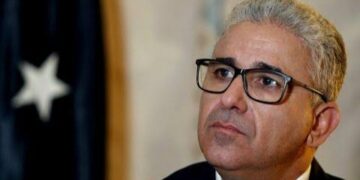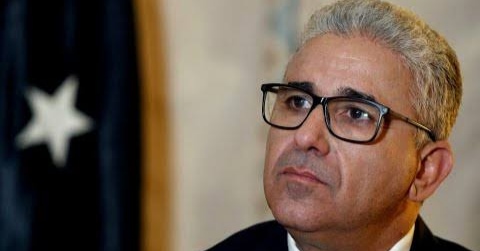By John Ikani
Libya’s Parliament swore in a rival Prime Minister on Thursday in a bid to oust the unity government, a move that has raised fears of another major schism in the war-scarred country.
Fathi Bashaga took the oath of office as prime minister in the eastern city of Tobruk, where Libya’s Parliament elected him last month.
Incumbent Prime Minister Abdulhamid al-Dbeibah has said that he will not step down.
The appointment of the rival body to the country’s Tripoli-based authorities has raised fears of more strife after nearly 10 years of civil war that saw the country split between parallel administrations in the east and the west.
Libya has been mired in chaos since a NATO-backed uprising removed longtime leader Muammar Gaddafi in 2011. The country was subsequently split between rival administrations based in Tripoli in the west and a Tobruk-based Parliament in the east.
After taking the oath, Bashagha told the Tobruk-based Parliament that armed groups had abducted the newly appointed ministers for foreign affairs, culture and technical education and shot at others who were on their way to the swearing-in ceremony. The reports could not be independently verified.
“Some are trying to drag us into war and infighting but we will not give them such a chance. We will not spill a single drop of blood,” Bashagha said.
“We will study all options so that we can take over power in Tripoli by force of the law and not by force.”
The east-based Parliament condemned the alleged abductions and held Dbeibah’s government responsible for the safety of all new ministers.
The legislators also renewed their calls for Dbeibah to cede power peacefully.
Libya, which had plunged into violence following the 2011 revolt that toppled dictator Muammar Gaddafi, has seen a year and a half of relative peace since a landmark 2020 ceasefire ending a major battle between eastern and western factions.
Dbeibah was appointed a year ago as part of United Nations-led peace efforts and had been given a mandate to lead the country to December 2020 elections.
But the polls were postponed indefinitely amid sharp divisions over their legal basis and the presence of contentious candidates including eastern military chief Khalifa Haftar.
On February 10, the Parliament appointed Bashagha to form a new government. It said elections should be held within 14 months. Dbeibah refused to step aside, pledging to hold on to power until elections take place.
On Tuesday, the Parliament had given its backing to Bashagha’s proposed cabinet, in a confidence vote Dbeibah condemned as “blatantly” fraudulent, lacking quorum and with some MPs counted as voting in favour even though they were absent.
United Nations chief Antonio Guterres’ office said Wednesady he was “concerned over reports that (the vote) fell short of the expected standards of transparency and procedures and included acts of intimidation prior to the session”.
And hours before being sworn in on Thursday, Bashagha’s choice for Economy and Trade Minister Jamal Salem Shaaban quit, criticising the vote as lacking transparency and bypassing parliamentary procedures.
“It would be no honour to take part in a government that would bring war and destruction and take the capital into a dark tunnel,” he said in a video carried by local media.
World powers had placed great hopes on elections as a way of drawing a line under a decade of violence in Libya.
The UN’s top official in the country has referred to Libya’s political elite as political “dinosaurs” clinging to power by preventing them from taking place.
Peter Millett, a former British Ambassador to the country, told AFP in February that rather that an east-west split, the main division now “is between the Libyan people — who want elections — and the political elite, who don’t.”




































